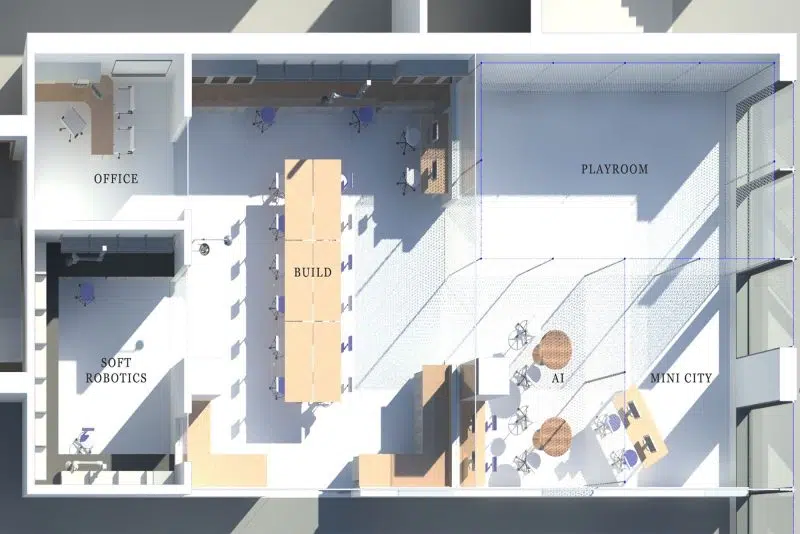Earlier this month, the Massachusetts Executive Office of Housing and Economic Development (EOHED) announced a $4.39 million grant to Boston University for a new research and development center called the Robotics and Autonomous Systems Teaching and Innovation Center (RASTIC).
The award is from the Commonwealth's Collaborative Research and Development Matching Grant Program, managed by the Massachusetts Technology Collaborative.
The grant will support a three-year, $8.78 million project managed by BU in collaboration with Boston-based MassRobotics and six industry partners. AET Labs is proud to be one of the industry partners to help bring the latest robotics and autonomous vehicles technology to BU's new center.
The infrastructure investment will expand and enhance BU's existing R&D facilities while enriching robotics courses offered at the university, allowing for increased enrollment in the university's graduate-level robotics degree program by up to 80 more students per year, or five-times the current capacity.
Once launched in the summer of 2023, BU's Robotics and Autonomous Systems Teaching and Innovation Center (RASTIC) will become a "neutral space" where companies can work directly with faculty and students, encouraging hands-on projects to design, prototype, and test new robotic devices.
The facilities will include four distinct zones that will provide simulated and scaled settings to mimic the complex environments in which robotic devices and systems must operate. The four zones consist of:
- A scaled miniature city to design and test autonomous vehicle algorithms;
- A "soft robotics" zone, with equipment for rapid prototyping (3D printers, thermoforming machines, ovens, vacuum chamber, and small fabrication equipment);
- A planning and control zone, which will allow experiments with a variety of robotics platforms (iRobot, Boston Dynamics, etc.) for the application of small computing and control platforms; and,
- An artificial intelligence (AI) zone will provide access to a Robotics Operating System (ROS) infrastructure that uses physics-based simulation and experimentation with robotics hardware to test and deploy robotics devices.
Read more here:
BU to Open New Robotics Lab to Foster More Student Innovators - Boston University
Baker-Polito Administration Awards $4.4 Million R&D Grant for New Boston University Robotics Facility - The Innovation Institute at the MassTech Collaborative

